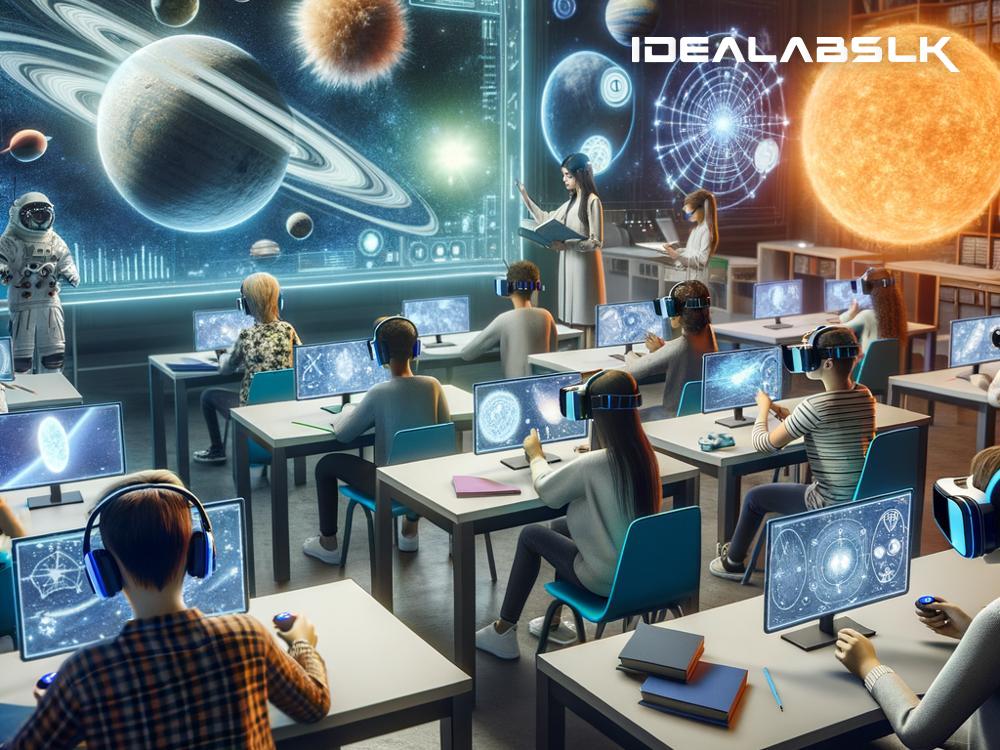How Space Exploration Will Transform Education and Technology Development on Earth by 2025
In the last few years, space exploration has captured the imagination of millions. With missions like SpaceX's Starship and NASA's Artemis program planning to return humans to the Moon, the final frontier seems closer than ever. But you may wonder, "What does all this have to do with life on Earth, especially with education and technology development?" It turns out, quite a bit. Let's dive into how the advancements in space exploration will significantly transform both education and technology on Earth by 2025.
Sparking New Interest in STEM
One of the most immediate impacts of space exploration is its power to inspire. As rockets launch and landings on other planets make headlines, young minds across the globe are sparked with curiosity. This fascination is not just limited to the spectacle of space travel but extends to the science, technology, engineering, and mathematics (STEM) that make it all possible. By 2025, expect a significant surge in students pursuing STEM careers, driven by dreams of exploring the cosmos or contributing to space missions. Schools, recognizing this interest, will likely introduce more space-related content in their curriculum, fueling a new generation of innovators and explorers.
Revolutionizing Technology On Earth
Every mission to space is a challenge that pushes our technology to its limits and beyond. The solutions we invent often find their way back to Earth, transforming our lives in unexpected ways. Here are just a few ways how:
Advanced Materials
The harsh conditions of space require materials that are lightweight yet incredibly strong. Research in this area not only benefits spacecraft design but also leads to the development of new materials for use on Earth. By 2025, we might find these materials in everything from safer, fuel-efficient cars to more resilient infrastructure, enhancing our everyday lives while helping us build a more sustainable future.
Healthcare Innovations
Microgravity affects the human body in unique ways, prompting space agencies to develop innovative healthcare solutions to ensure astronaut well-being. These innovations often trickle down to Earth, offering advancements in medical technology and treatments. Expect breakthroughs in telemedicine, portable health monitoring devices, and even new drug discoveries as direct outcomes of space exploration's challenges.
Improved Communication Technologies
Space missions require robust communication systems to transmit vast amounts of data back to Earth. The technology developed to meet this need has historically led to improvements in Earth-based communication technologies. By 2025, this could mean more reliable, faster internet access in remote areas, thanks to satellite technology initially developed for space exploration.
Enhancing Educational Tools and Methods
Space exploration is not just about sending astronauts to other planets; it's also about analyzing data, solving problems, and thinking creatively. These aspects offer a rich foundation for educational content and methodologies.
Virtual Reality (VR) and Augmented Reality (AR) in Classrooms
Imagine students taking a virtual walk on Mars or exploring the International Space Station without leaving their classroom. The developments in VR and AR technologies, driven by the need to simulate space environments for training and research, could make such experiences common in education by 2025. These tools can make learning more engaging and immersive, helping students better understand complex concepts.
Global Collaboration
Space exploration is a global endeavor that requires collaboration across countries and cultures. This spirit of cooperation can inspire educational initiatives that promote a more interconnected and collaborative approach to learning. By 2025, we could see an increase in international educational projects and programs inspired by space exploration, preparing students for a globalized workforce.
Conclusion
As we look to the stars, we're not just discovering the unknown but also pioneering advancements that have the power to transform life on Earth. By 2025, the impacts of current and upcoming space missions will likely be evident in our education systems and technological landscapes. From inspiring the next generation of STEM professionals to driving innovations in materials, healthcare, and communication, space exploration is set to make our world a better place.
So, as rockets continue to launch and destinations beyond our planet become within reach, remember: the journey to explore space is not just about what we find out there, but also about what we bring back to Earth—knowledge, inspiration, and technology that will shape our future.

